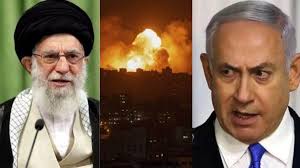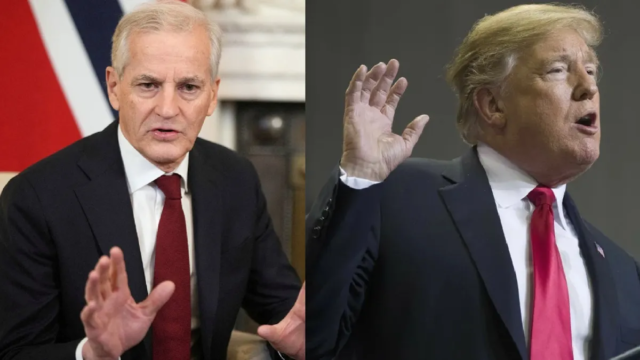Nothing has changed… Iran is preparing for a big attack against Israel, a strategy is being made apart from the nuclear program!

b
Iran has suffered one setback after another in the last two years. On the one hand, it has had to face attacks by Israel and America on its nuclear bases. On the other hand, its supported governments and armed groups have weakened in the Arab world. However, now Iran is once again trying to increase its regional influence. Iran’s proxy groups are increasing pressure on key points in West Asia. This shows that Iran can not only work on its nuclear bases again but is also setting up its proxy groups. Iran has moved forward rapidly on this, especially after the talks with America stopped.
According to CNN report, Yemen’s Houthis have once again intensified attacks on commercial ships in the Red Sea. At the same time, Hezbollah in Lebanon has also increased its activities. This shows Iran’s support to the network of these armed groups. Michael Knights, a senior fellow at the Washington Institute, says that Iran’s help to its groups may decrease but it will never stop supplying them.
Iranian weapons to Yemen’s Houthis
Just three days after Iran and Israel announced a ceasefire, a ship carrying 750 tons of Iranian missiles, drone engines and radar systems was intercepted by forces of Yemen’s exiled government in the Red Sea. US Central Command says the consignment was sent by Iran for the Houthis. However, Iran rejected the US claim and called it an attempt to mislead.
Houthis in Yemen have recently carried out major attacks on commercial ships in the Red Sea. Four crew members were killed in a Houthi attack. UK-based maritime risk management company Vanguard Tech told CNN that six people on board the ship were captured by the Houthis. These attacks show an increase in Iran’s help to the Houthis and their use of force.
Increased role in Iraq
In Iraq, Iran-backed groups have increased their attacks on Western allies in the past few months. This has destabilized oil production in the Kurdish-controlled region. KRG spokesman Peshav Hawramani told CNN that the drone attacks are aimed at “destroying energy infrastructure and ensuring that the KRG has no capacity to produce oil and gas.”
The KRG’s interior ministry blamed the Iraq-based Iran-backed paramilitary force Popular Mobilization Units, which is Shia-dominated, for the attacks earlier this month. The US-backed government has described the drone attacks near the KRG capital, Erbil, as attacks aimed at spreading chaos.
Strength reduced in Lebanon and Syria
Israel carried out heavy airstrikes on Hezbollah in Lebanon last year. Iran’s regional influence in Lebanon has been significantly weakened due to Hezbollah’s weakening in these attacks. Hezbollah leader Hassan Nasrallah was also killed in an Israeli attack last year. On the other hand, the coup of Syrian President Bashar al-Assad has hindered Iran’s access to Lebanon.
A regional official told CNN that Hezbollah has weakened but Iran is trying to strengthen it. Another regional source said that Hezbollah may reorganize itself due to the fear of escalation of tensions from Israel. Due to the loss of Syria and the growing internal pressure of Lebanon, Hezbollah feels its existence is in danger.
Effect of breaking talks with America!
This initiative of Iran to re-arm its supporting groups in West Asia has come at a time when its talks with America are in cold storage. Trump has said that he is not in a hurry to negotiate with Iran. At the same time, Larijani, a senior advisor to Iran’s supreme leader Ali Khamenei, has said that now is not the time for talks.
Experts say that rebuilding regional armed groups and demonstrating their destructive capabilities can prove beneficial for Iran. Iran wants to negotiate in a strong position despite the recent setbacks it has suffered. In such a situation, it is trying to show its strength to the world through its proxy groups.







